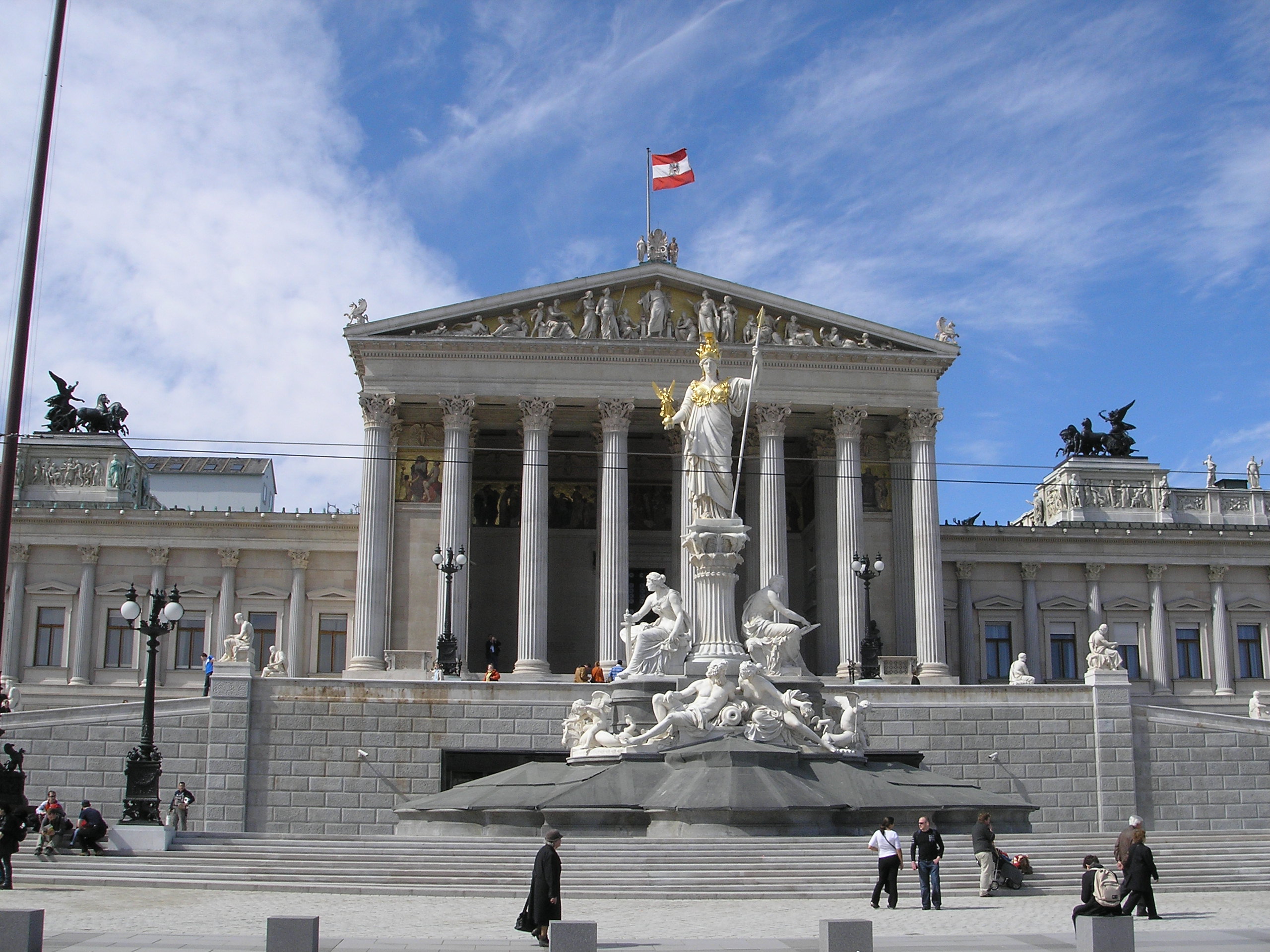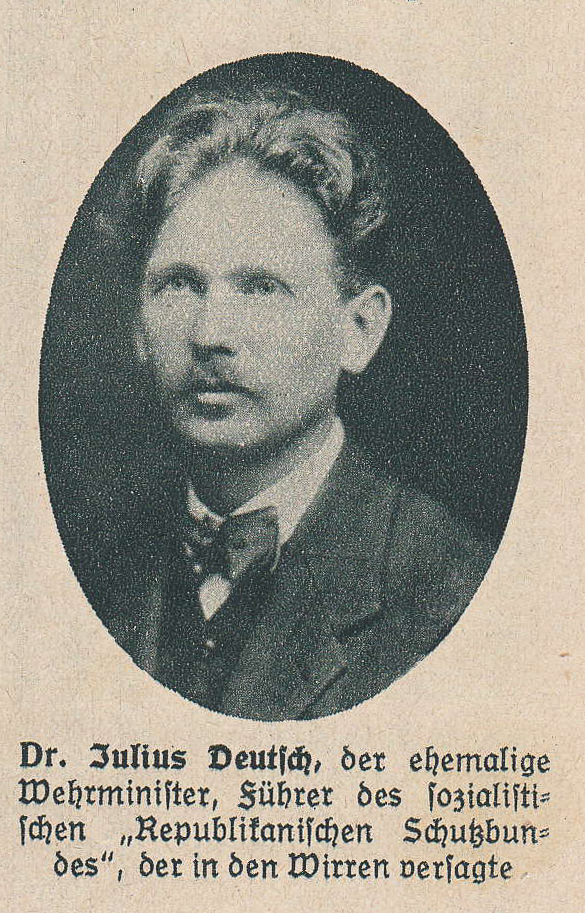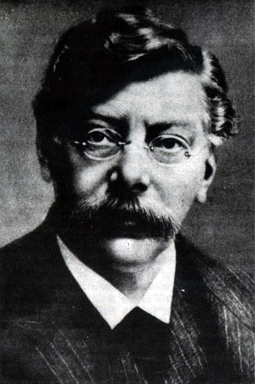|
Second Renner Government
The Second government of Karl Renner was a short-lived Austrian provisional government, formed shortly after World War I. It was sworn in on 15 March 1919. It succeeded the First Renner government, which had resigned on 3 March 1919, but had continued at the request of the State Council until the election. It was replaced with the Third Renner government Third or 3rd may refer to: Numbers * 3rd, the ordinal form of the cardinal number 3 * , a fraction of one third * 1⁄60 of a ''second'', or 1⁄3600 of a ''minute'' Places * 3rd Street (other) * Third Avenue (other) * Hig .... Composition Some of the members were carryover from the First Renner government, and some continued into the Third Renner government. References External links Federal Chancellery of Austria: Government {{Cabinets of Austria Politics of Austria 1919 establishments in Austria Renner II 1910s in Austria 1919 disestablishments in Austria ... [...More Info...] [...Related Items...] OR: [Wikipedia] [Google] [Baidu] |
Karl Renner
Karl Renner (14 December 1870 – 31 December 1950) was an Austrian politician and jurist of the Social Democratic Workers' Party of Austria. He is often referred to as the "Father of the Republic" because he led the first government of German-Austria and the First Austrian Republic in 1919 and 1920, and was once again decisive in establishing the present Second Republic after the fall of Nazi Germany in 1945, becoming its first President after World War II (and fourth overall). Early life Renner was born the 18th child of an ethnic German family of poor wine-growers in Unter-Tannowitz (present-day Dolní Dunajovice in the Czech Republic), then part of the Margraviate of Moravia, a crown land of the Austro-Hungarian Empire. Because of his intelligence, he was allowed to attend a selective '' gymnasium'' in nearby Nikolsburg (Mikulov), where one of his teachers was Wilhelm Jerusalem. From 1890 to 1896 he studied law at the University of Vienna. In 1895 he was one of the foundin ... [...More Info...] [...Related Items...] OR: [Wikipedia] [Google] [Baidu] |
Ministry Of Economy (Austria)
In Austrian politics, the Federal Ministry for Digital and Economic Affairs (German: ''Bundesministerium für Digitalisierung und Wirtschaftsstandort'') is the ministry in charge of promoting commerce and industry, overseeing public works, and maintaining the public infrastructure. In some recent cabinets, it has also been responsible for employment; in others, for family affairs and science. The current Minister of the Economy is Margarete Schramböck. Originally founded in 1848 as the Ministry for Commerce and Public Works (''Ministerium für Handel und öffentliche Arbeiten''), the institution's formal name of exact portfolio have undergone numerous changes over the years. As of 2018, the ministry is officially called the Ministry of Digital and Economic Affairs (''Ministerium für Digitalisierung und Wirtschaftsstandort'' or ''BMDW''). History The Ministry of Economy was first established in the aftermath of the Revolutions of 1848 in the Austrian Empire as the Minist ... [...More Info...] [...Related Items...] OR: [Wikipedia] [Google] [Baidu] |
Austrian Governments
Austrian may refer to: * Austrians, someone from Austria or of Austrian descent ** Someone who is considered an Austrian citizen, see Austrian nationality law * Austrian German dialect * Something associated with the country Austria, for example: ** Austria-Hungary ** Austrian Airlines (AUA) ** Austrian cuisine ** Austrian Empire ** Austrian monarchy ** Austrian German (language/dialects) ** Austrian literature ** Austrian nationality law ** Austrian Service Abroad ** Music of Austria ** Austrian School of Economics * Economists of the Austrian school of economic thought * The Austrian Attack variation of the Pirc Defence chess opening. See also * * * Austria (other) * Australian (other) Australian(s) may refer to: Australia * Australia, a country * Australians, citizens of the Commonwealth of Australia ** European Australians ** Anglo-Celtic Australians, Australians descended principally from British colonists ** Aboriginal Au ... * L'Autrichienne (d ... [...More Info...] [...Related Items...] OR: [Wikipedia] [Google] [Baidu] |
1919 Establishments In Austria
Events January * January 1 ** The Czechoslovak Legions occupy much of the self-proclaimed "free city" of Pressburg (now Bratislava), enforcing its incorporation into the new republic of Czechoslovakia. ** HMY ''Iolaire'' sinks off the coast of the Hebrides; 201 people, mostly servicemen returning home to Lewis and Harris, are killed. * January 2– 22 – Russian Civil War: The Red Army's Caspian-Caucasian Front begins the Northern Caucasus Operation against the White Army, but fails to make progress. * January 3 – The Faisal–Weizmann Agreement is signed by Emir Faisal (representing the Arab Kingdom of Hejaz) and Zionist leader Chaim Weizmann, for Arab–Jewish cooperation in the development of a Jewish homeland in Palestine, and an Arab nation in a large part of the Middle East. * January 5 – In Germany: ** Spartacist uprising in Berlin: The Marxist Spartacus League, with the newly formed Communist Party of Germany and the Independent Social De ... [...More Info...] [...Related Items...] OR: [Wikipedia] [Google] [Baidu] |
Politics Of Austria
Politics in Austria reflects the dynamics of competition among multiple political parties, which led to the formation of a Conservative-Green coalition government for the first time in January 2020, following the snap elections of 29 September 2019, and the election of a former Green Party leader to the presidency in 2016. Austrian politics takes place within the constitutional framework of a federal parliamentary republic, with a President (''Bundespräsident'') serving as head of state and a Chancellor (''Bundeskanzler'') as head of government. Governments, both local and federal, exercise executive power. Federal legislative power is vested both in the Federal Government and in the two chambers of Parliament; the National Council (''Nationalrat'') and the Federal Council (''Bundesrat''). The Judiciary of Austria is independent of the executive and legislative branches of government. Following the end the Second World War and re-establishment of Austria as a sovereign sta ... [...More Info...] [...Related Items...] OR: [Wikipedia] [Google] [Baidu] |
Ministry Of Transport (Austria)
The Ministry of Climate Action and Energy () is the government ministry of Austria in charge of traffic, research, innovation, energy, and environmental protection. Overview First established in 1896, its exact name and portfolio have undergone changes numerous times throughout the years. From 2000 to 2020, the ministry was officially called the Ministry for Transport, Innovation and Technology (''Bundesministerium für Verkehr, Innovation und Technologie'' or ''BMVIT''). It is tasked, in addition to its core regulatory and infrastructure responsibilities, with the promotion of scientific research and technological progress. The ministry regulates motor vehicles, railways, waterways, aviation safety, air traffic control, air weather services, public transport, the postal system, and the telecommunications sector. It maintains the Autobahns of Austria, autobahns and other national highways. The Ministry also owns and supervises the via donau, a corporation charged with the maint ... [...More Info...] [...Related Items...] OR: [Wikipedia] [Google] [Baidu] |
Julius Deutsch
Julius Deutsch (February 2, 1884, Lackenbach, Austria-Hungary – January 17, 1968, Vienna, Austria) was a politician of the Social Democratic Workers' Party of Austria, member of Parliament between 1920-1933 and co-founder and leader of the Social Democrat militia "Republikanischer Schutzbund" (Republican Defense Association). Leader of the Schutzbund Julius Deutsch founded the "Schutzbund" in 1923 as an answer to the paramilitary organization "Heimwehr" (Home Guard), which was ideologically related to the Christian Social Party. He remained its leader until its destruction in 1934. Schutzbund members were primarily recruited out of the "Deutschösterreichische Volkswehr" (German-Austrian People's Guard). It had been organized by Deutsch himself as Under Secretary of State in the Department of Armed Forces (November 1918 until March 1919) and as Secretary of State in the Department of Armed Forces (March 1919 until October 1920). After the defeat of the Republican Guard dur ... [...More Info...] [...Related Items...] OR: [Wikipedia] [Google] [Baidu] |
Minister Of Defense (Austria) ...
The Minister of Defense of Austria heads the Ministry of Defense. First Austrian Republic * Partly as Chancellor or Vice-Chancellor. Second Austrian Republic *Entrusted with continuation of the ministry See also * Supreme Commander of the Imperial and Royal Armed Forces * Minister of War (Austria-Hungary) * Austrian Minister of Defence (Austria-Hungary) * Ministry of Defense (Austria) * Chief of the General Staff (Austria) Notes References External links *Bundesministerium für Landesverteidigung Österreich* Karl Lütgendorf (German) :de:Karl Lütgendorf {{Austrian Federal Ministries Defence Defense or defence may refer to: Tactical, martial, and political acts or groups * Defense (military), forces primarily intended for warfare * Civil defense, the organizing of civilians to deal with emergencies or enemy attacks * Defense indus ... [...More Info...] [...Related Items...] OR: [Wikipedia] [Google] [Baidu] |
Otto Bauer
Otto Bauer (5 September 1881 – 4 July 1938) was one of the founders and leading thinkers of the left-socialist Austromarxists who sought a middle ground between social democracy and revolutionary socialism. He was a member of the Austrian Parliament from 1907 to 1934, deputy party leader of the Social Democratic Workers' Party (SDAP) from 1918 to 1934, and Foreign Minister of the Republic of German-Austria in 1918 and 1919. In the latter position he worked unsuccessfully to bring about the unification of Austria and the Weimar Republic. His opposition to the SDAP joining coalition governments after it lost its leading position in Parliament in 1920 and his practice of advising the party to wait for the proper historical circumstances before taking action were criticized by some for facilitating Austria's move from democracy to fascism in the 1930s. When the SDAP was outlawed by Austrofascist Chancellor Kurt Schuschnigg in 1934, Bauer went into exile where he continued to work f ... [...More Info...] [...Related Items...] OR: [Wikipedia] [Google] [Baidu] |
Minister Of Foreign Affairs (Austria)
This article lists the Ministers of Foreign Affairs of Austria, from 30 October 1918 up to today. During the time of the ''Anschluss'' to Nazi Germany from 1938 to 1945, Austria had no government in its own right. The current Austrian Foreign Minister is Alexander Schallenberg, who took office on 6 December 2021. List of officeholders (1918–present) Foreign Ministers of Austria during the Interwar period Austria annexed by Nazi Germany in 1938 (see Austria under National Socialism for details). Independence restored in 1945. Foreign Ministers of Austria after the end of World War II See also *Foreign relations of Austria * List of diplomatic missions of Austria *List of foreign ministers of Austria-Hungary This is a list of foreign ministers (german: Außenminister) of the Habsburg monarchy, of the Austrian Empire, and of Austria-Hungary up to 1918. Ministers of Foreign Affairs of the Habsburg monarchy (1720–1805) Fro ... [...More Info...] [...Related Items...] OR: [Wikipedia] [Google] [Baidu] |
Ferdinand Hanusch
Ferdinand Hanusch, also spelled in French Ferdinand Hannouche, (9 November 1866 in Obersdorf bei Wigstadtl, Austrian Silesia (now Horní Ves part of Vítkov, Czech Republic) – 28 September 1923 in Vienna, Austria) was an Austrian socialist politician who served as Vice-Chancellor of Austria from 7 July to 22 October 1920. He was cremated at Feuerhalle Simmering Feuerhalle Simmering is a crematorium with attached urn burial ground in the Simmering (Vienna), Simmering district of Vienna, Austria. It lies at the end of an alley, directly opposite Vienna Central Cemetery's main gate. Description Opened on ..., where also his ashes are buried. 1866 births 1923 deaths People from Vítkov People from Austrian Silesia Silesian-German people Austrian people of Czech descent Social Democratic Party of Austria politicians Vice-Chancellors of Austria Members of the Austrian House of Deputies (1907–1911) Members of the Austrian House of Deputies (1911–1918) Members ... [...More Info...] [...Related Items...] OR: [Wikipedia] [Google] [Baidu] |
Ministry Of Social Affairs (Austria)
In Austrian politics, the Federal Ministry of Social Affairs, Health, Care and Consumer Protection (''Bundesministerium für Soziales, Gesundheit, Pflege und Konsumentenschutz'') is the ministry in charge of welfare policy. The Ministry was first created in 1917 as the Ministry of Social Welfare (''Ministerium für soziale Fürsorge''). In its modern form, it dates back to the 1987 establishment of the Ministry of Labor and Social Affairs (''Ministerium für Arbeit und Soziales''). From January 2018 to January 2020, the Ministry's official name was Ministry of Labor, Social Affairs, Health, and Consumer Protection (''Bundesministerium für Arbeit, Soziales, Gesundheit und Konsumentenschutz''). It is responsible for welfare, senior citizens affairs, health care, and consumer policy; it is also charged with stimulating job creation and fighting unemployment. In spite of its official designation, the Ministry is only rarely referred to as the Ministry of Labor (''Arbeitsministerium ... [...More Info...] [...Related Items...] OR: [Wikipedia] [Google] [Baidu] |




